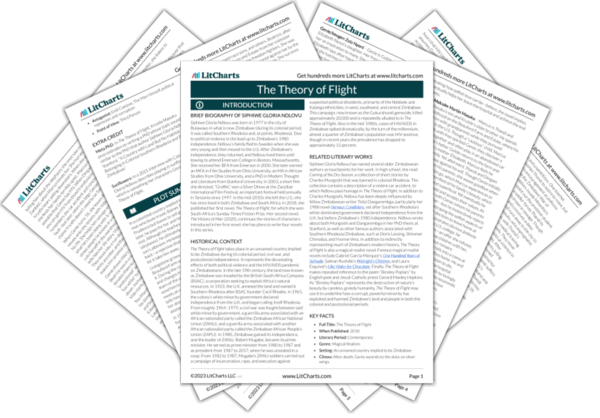Robert Mugabe, the figure on whom The Man Himself seems to be based, belonged to the Zimbabwe African National Union (ZANU), one of two political organizations that opposed the existing white-minority government during the Zimbabwe War of Independence (1964–1979). The other organization was the Zimbabwe African People’s Union (ZAPU). After Mugabe and ZANU came to power in 1980, he began repressing ZAPU-associated “dissidents.” From 1982 to 1987, government soldiers carried out a campaign of terror against people of Ndebele and Kalanga minority ethnicities, among whom ZAPU had supporters. This campaign is known as the Gukurahundi genocide. The passage suggests that Bhekithemba hears rumors of the Gukurahundi genocide, including the death of his cousin, but decides not to try to report it because The Man Himself has too much “power” for the story to be published anyway. The phrase “learned his lesson” is ironic; Bhekithemba has learned a bad lesson—to bow to corrupt authority. Under the circumstances, The Man Himself’s interest in Golide foreshadows something bad.
